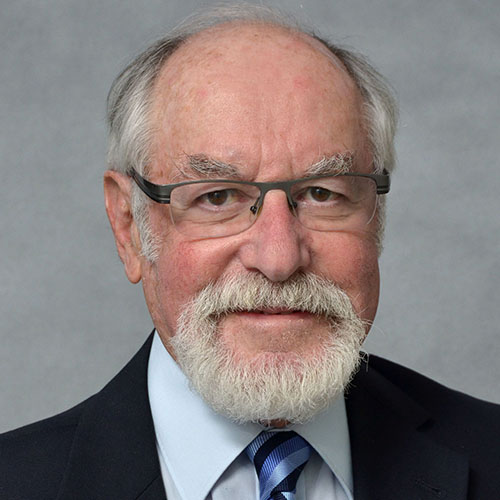ACC’s 2021 Lifetime Achievement Award Recognizes Jay N. Cohn, MD, FACC

Developing groundbreaking treatments for cardiovascular disease is a goal Jay N. Cohn, MD, FACC, has pursued for 60 years. He spearheaded the use of physiologic principles to improve the management of diseases such as hypertension, heart failure and shock, which led to the development of intensive care units (ICUs). For his decades of work in research and disease management, Cohn will receive ACC's 2021 Lifetime Achievement Award during ACC.21.
"This in a way represents vindication for my whole career, which has been dedicated to tying medical therapy to an understanding of the pathophysiology of the disease process," Cohn says of receiving the award. "I'm proud that I have been able to contribute to the way medicine has focused on disease treatment based on an understanding of the processes that lead to disease progression, rather than just a focus on likelihood of a benefit on outcome."
Cohn's early work in cardiovascular research started with hypertension, which he recognized as a disease of the blood vessels that could progress to other end-stage diseases. While working as a clinical investigator at the Veterans Administration Hospital in Washington, DC, in the 1960s, his research evolved to help him understand the importance of recognizing disease earlier in patients to slow its progression. That, in turn, led his research team to determine that heart failure was related to structural change in the left ventricle, which occurred over time and could be monitored clinically.
That evolution led to a revolution in the treatment of heart failure, where Cohn and his colleagues began to measure hormone levels in patients with heart failure and use vasodilators to inhibit the sympathetic nervous system and the renin-angiotensin system.
Cohn continued his research efforts at the University of Minnesota Medical School in 1974, where he became head of the cardiovascular division. He later helped found the Heart Failure Society of America and the university's Rasmussen Center for Cardiovascular Disease Prevention.
"My early work in heart failure led to my decision to start a society and to advocate for a profession focused on heart failure," he says. "The interest in heart failure was promulgated by an effort to get people interested in it and make it into a specialty of cardiology. That has enhanced the whole field of heart failure as a subspecialty organization in the study of heart disease. Many of my colleagues were stimulated at the beginning of this and worked with me to help enhance the field."
Eventually, Cohn used the Rasmussen Center to spread the word about disease prevention to those outside the medical profession and has written books as part of that effort. The best known of the books is Saving Sam, which Cohn calls "an autobiography of cardiovascular studies over the years."
"Our approach was to identify early disease by understanding the vascular and cardiac abnormalities, to monitor their progression and to link disease progression to subsequent morbid events, thus providing a whole different understanding of the progression of disease," he says. "The lay audience was very responsive to this message and they seemed to get it."
The journey was a challenge because changes Cohn supported often conflicted with traditional approaches to managing cardiac disease.
"My approach grew out of my interest in the disease process, not in the clinical management of patients with cardiac disease," Cohn says. "That independence colors my life in clinical and research medicine and may account for why my views were not always accepted by the medical community. I can't suggest that I would change what I did. I'm getting an award so I guess it has worked out."
Jay N. Cohn, MD, FACC, earned his medical degree at Cornell University Medical College in 1956 and served as an intern and assistant resident at Beth Israel Hospital, Boston. He was a research fellow, associate professor and professor of medicine at Georgetown University Medical Center and chief resident, clinical investigator and chief of hypertension and clinical hemodynamics at the Veterans Administration Hospital, both in Washington, DC. In 1974, he was named head of the cardiovascular division and professor of medicine at the University of Minnesota Medical School, Minneapolis. In 1999, he was named director of the Rasmussen Center for Cardiovascular Disease Prevention at the University of Minnesota Medical School. He has published more than 750 original articles, three textbooks and numerous book chapters. As a measure of his impact in the field, he has been cited more than 16,000 times and two of his articles have been cited more than 1,000 times. He has given more than 40 named lectureships and 84 invited lectures.
Keywords: ACC Annual Scientific Session, ACC21, ACC Publications, Cardiology Magazine
< Back to Listings
